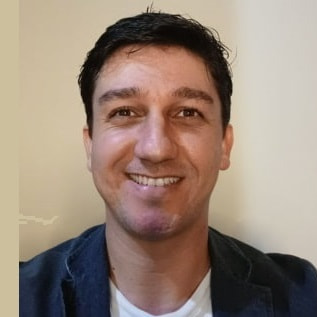The Effect of the Physical Activity on the Health of People
A special issue of International Journal of Environmental Research and Public Health (ISSN 1660-4601). This special issue belongs to the section "Exercise and Health-Related Quality of Life".
Deadline for manuscript submissions: 31 August 2024 | Viewed by 278
Special Issue Editors
Interests: physical exercise; human health; exercise physiology; resistance training
Interests: physical activity; human health; older adults; strength; crossfit; biomechanics of sport and physical activity; exercise physiology
Special Issues, Collections and Topics in MDPI journals
Special Issue Information
Dear Colleagues,
Physical activity is defined as any bodily movement produced by skeletal muscles that requires energy expenditure (WHO, 2020). People who perform regular physical activity have a lower risk of coronary heart disease and stroke, type 2 diabetes, bowel cancer, breast cancer, early death, osteoarthritis, hip fracture, falls (among older adults), depression, and dementia. As a result of COVID-19 isolation, there was an increase in individuals' perceptions of the importance of being physically active in maintaining good quality of life and health.
Furthermore, physical exercise has many health benefits, and evidence of this continues to accumulate. Healthcare professionals should incorporate physical exercise counseling for patients into their daily clinical practice.
This Special Issue of the International Journal of Environmental Research and Public Health (IJERPH) focuses on the current state of knowledge on the effects of different types of physical exercise on people’s health, and welcomes new research papers, reviews, and case reports. Papers on new approaches to the practice of physical exercise in relation to their health or risk assessment are also welcome. Other accepted manuscript types include methodological papers, position papers, brief reports, and commentaries.
Prof. Dr. Osvaldo Costa Moreira
Prof. Dr. Luis Leitão
Guest Editors
Manuscript Submission Information
Manuscripts should be submitted online at www.mdpi.com by registering and logging in to this website. Once you are registered, click here to go to the submission form. Manuscripts can be submitted until the deadline. All submissions that pass pre-check are peer-reviewed. Accepted papers will be published continuously in the journal (as soon as accepted) and will be listed together on the special issue website. Research articles, review articles as well as short communications are invited. For planned papers, a title and short abstract (about 100 words) can be sent to the Editorial Office for announcement on this website.
Submitted manuscripts should not have been published previously, nor be under consideration for publication elsewhere (except conference proceedings papers). All manuscripts are thoroughly refereed through a single-blind peer-review process. A guide for authors and other relevant information for submission of manuscripts is available on the Instructions for Authors page. International Journal of Environmental Research and Public Health is an international peer-reviewed open access monthly journal published by MDPI.
Please visit the Instructions for Authors page before submitting a manuscript. The Article Processing Charge (APC) for publication in this open access journal is 2500 CHF (Swiss Francs). Submitted papers should be well formatted and use good English. Authors may use MDPI's English editing service prior to publication or during author revisions.
Keywords
- human health
- exercise
- resistance training
- aerobic training
- physical fitness
- disease
- elderly
Planned Papers
The below list represents only planned manuscripts. Some of these manuscripts have not been received by the Editorial Office yet. Papers submitted to MDPI journals are subject to peer-review.
Title: Maintenance of physical function and self-efficacy improvements in county-wide exercise program for older adults: Feeling Fit Club
Authors: Katie Thralls Butte
Affiliation: School of Health Sciences, Seattle Pacific University, WA 98109, USA
Abstract: Background: Physical activity (PA) interventions improve physical function in older adults. However, without sustainable interventions, improvements are often lost and jeopardize independence. We examined the effectiveness of a county-wide instructor-led exercise program (Feeling Fit Club (FFC)) in maintaining initial physical function and psychosocial improvements in older adults. Methods: Six new FFC classes (2d/wk) were demographically-matched with six control sites, receiving no intervention. Community-dwelling older adults were measured at baseline, 3, and 6 months for physical function (upper and lower body strength, cardiorespiratory fitness, mobility/agility) and psychosocial variables (exercise self-efficacy, activities of daily living perceptions). Mixed effects models examined the main effects for group (FFC vs. control) and time (0, 3, 6 months) and a group X time interaction. A non-linear component (time2) was added to test if improvements were maintained from 3 to 6 months. Results: Participants (N=273; Mage =73.9yrs) were mostly female (77%) and Caucasian (79%). There was a significant group X time interaction for all physical function measures (ps<.05) and for exercise self-efficacy (p<0.01) showing 3-month improvements in those attending FFC compared to controls; there was no significant improvement in the model with the added non-linear component (time2), indicating maintained improvement at 6 months. Conclusions: Participation in county-wide disseminated evidence-based programs are an important, sustainable strategy to maintain function and support independence in community-dwelling older adults.






